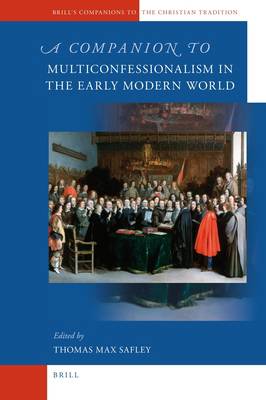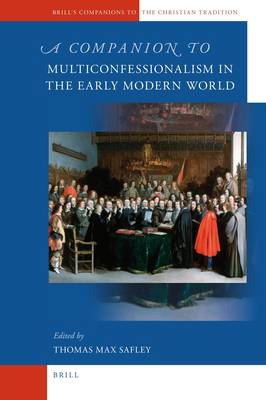
- Afhalen na 1 uur in een winkel met voorraad
- Gratis thuislevering in België vanaf € 30
- Ruim aanbod met 7 miljoen producten
- Afhalen na 1 uur in een winkel met voorraad
- Gratis thuislevering in België vanaf € 30
- Ruim aanbod met 7 miljoen producten
Zoeken
A Companion to Multiconfessionalism in the Early Modern World
Safley Max Thomas
€ 236,74
+ 473 punten
Omschrijving
In the sixteenth century, the Christian church and Christian worship fragmented into a multiplicity of confessions that has grown to the present day. The essays in this volume demonstrate that multiconfessionalism, understood as the legally recognized and politically supported coexistence of two or more confessions in a single polity, was the rule rather than the exception for most of early modern Europe. The contributors examine its causes and effects. They demonstrate that local religious groups across the continent could cooperate with confessional opponents and oppose political authorities to make decisions about their religious lives, depending on local conditions and contingencies. In so doing, this volume offers a new vision of religion, state, and society in early modern Europe.
Contributors include: Bernard Capp, John R. D. Coffey, Jérémie Foa, David Frick, Raymond Gillespie, Benjamin Kaplan, Howard Louthan, David Luebke, Keith Luria, Guido Marnef, Graeme Murdock, Richard Ninness, Penny Roberts, Jesse Spohnholz, Peter Wallace, Lee Palmer Wandel.
Contributors include: Bernard Capp, John R. D. Coffey, Jérémie Foa, David Frick, Raymond Gillespie, Benjamin Kaplan, Howard Louthan, David Luebke, Keith Luria, Guido Marnef, Graeme Murdock, Richard Ninness, Penny Roberts, Jesse Spohnholz, Peter Wallace, Lee Palmer Wandel.
Specificaties
Betrokkenen
- Auteur(s):
- Uitgeverij:
Inhoud
- Aantal bladzijden:
- 512
- Taal:
- Engels
- Reeks:
- Reeksnummer:
- nr. 28
Eigenschappen
- Productcode (EAN):
- 9789004206977
- Verschijningsdatum:
- 9/06/2011
- Uitvoering:
- Hardcover
- Formaat:
- Genaaid
- Afmetingen:
- 165 mm x 244 mm
- Gewicht:
- 952 g

Alleen bij Standaard Boekhandel
+ 473 punten op je klantenkaart van Standaard Boekhandel
Beoordelingen
We publiceren alleen reviews die voldoen aan de voorwaarden voor reviews. Bekijk onze voorwaarden voor reviews.











